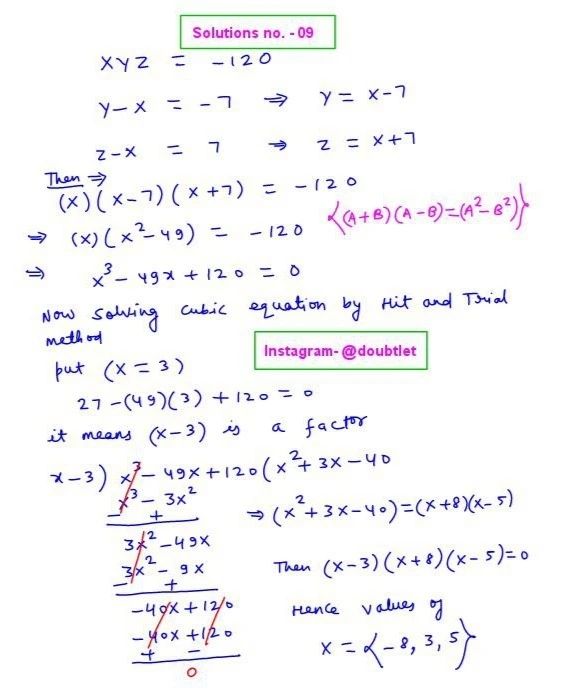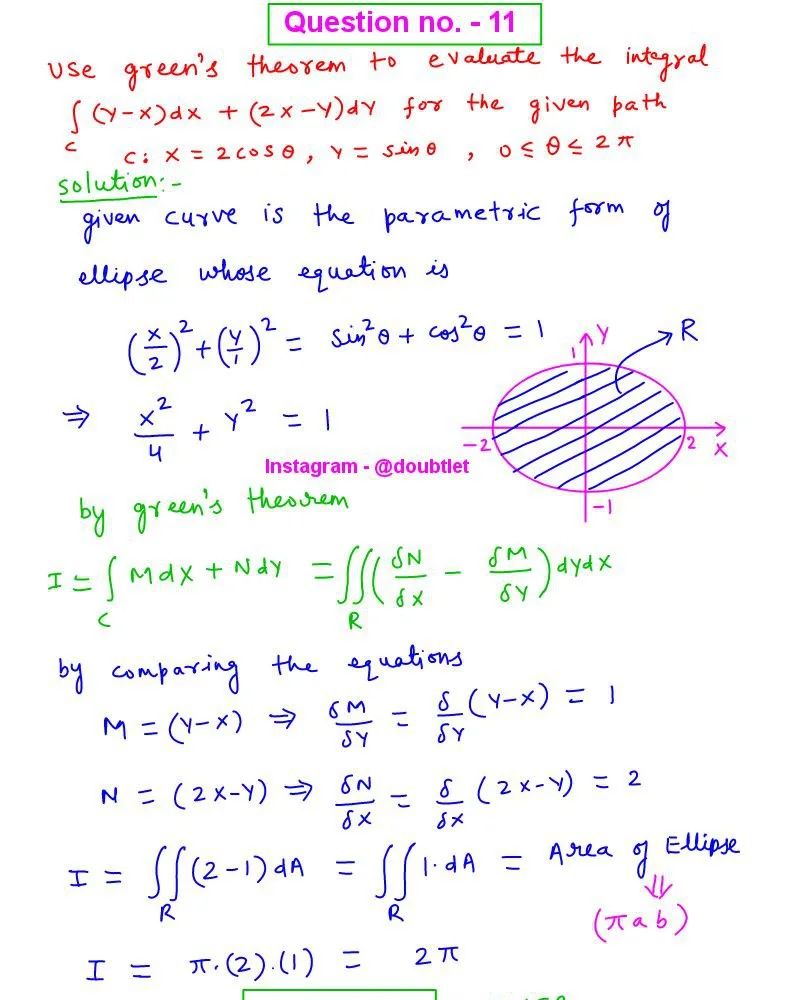
Neetesh Kumar | October 30, 2024
Calculus Homework Help
Differential Approximation
Contact me if you need help with Homework, Assignments, Tutoring Sessions, or Exams for STEM subjects.
You can see our Testimonials or Vouches from here of the previous works I have done.
Get Homework Help
Step-by-step solution:
To approximate f(3.03,5.99)−f(3,6) using the total differential, we set up the following approximation:
dz=fxdx+fydy
where:
- x=3, y=6
- dx=3.03−3=0.03
- dy=5.99−6=−0.01
Step 1: Calculate the Partial Derivatives fx and fy
The function given is:
f(x,y)=y21−x2
-
Calculate fx:
fx=∂x∂(y21−x2)=y2−2x
Substitute x=3 and y=6:
fx(3,6)=62−2⋅3=36−6=−61
-
Calculate fy:
fy=∂y∂(y21−x2)=y3−2(1−x2)
Substitute x=3 and y=6:
fy(3,6)=63−2(1−9)=216−2(−8)=21616=272
Step 2: Apply the Total Differential
Now we apply the total differential formula:
dz=fxdx+fydy
Substitute fx(3,6)=−61, fy(3,6)=272, dx=0.03, and dy=−0.01:
dz=(−61)(0.03)+(272)(−0.01)
Calculate each term:
dz=−60.03−270.02
-
Compute −60.03:
−60.03=−0.005
-
Compute −270.02:
−270.02≈−0.00074
Adding these results:
dz≈−0.005−0.00074=−0.00574
Final Answer
(Rounded to Three Decimal Places)
dz≈−0.006
Thus, the approximation for f(3.03,5.99)−f(3,6) is: −0.006
Please comment below if you find any error in this solution.
If this solution helps, then please share this with your friends.
Please subscribe to my
Youtube channel for video solutions to similar questions.
Keep Smiling :-)















Leave a comment